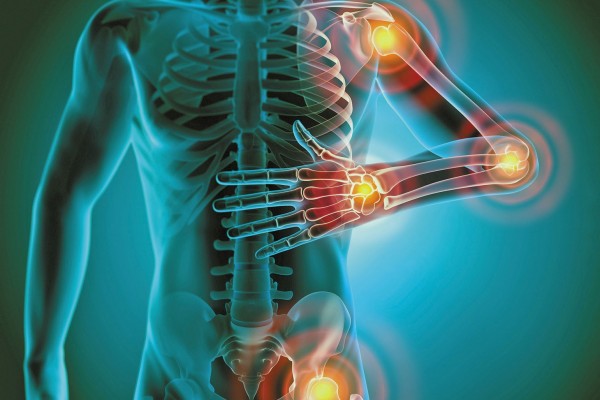Exactly What Is Inflammation?
Posted Nov 02, 2022 at 17:32
Posted Nov 02, 2022 at 17:32

Inflammation is a natural reaction in your body, and something almost every single person will have experienced to some degree. Whether you've fallen over and rolled your ankle, or walked into something and hit your head, or you’re a bit under the weather and you can feel the glands swelling in your neck. Most people see inflammation as a bad thing, as it causes discomfort and can make movement difficult. But actually, inflammation is a very important part of our bodies healing process.
There are 5 cardinal signs of inflammation. Redness (rubor); swelling (tumour); heat (calor); pain (dolor); and loss of function (functio lasea). The heat is caused by increased blood flow through the affected area, which also leads to redness. The swelling comes from increased passage of fluids into the surrounding tissues, and infiltration of cells into the damaged area. Pain is due to the initial damage (incase of direct injury/trauma) or from the inflammatory process itself and increased pressure in the area affecting the sensory nerves. Loss of function can be loss of mobility in a joint due to pain or swelling, or replacement of functional cells with scar tissue.
There are many types of cells involved in the inflammatory process, each playing an important role, and their appearance depending on the stage of the inflammatory process. Acute inflammation is the body's immediate response to the threat, however if the process is there for long enough and becomes chronic, the inflammation itself can become a threat. This is the case for conditions such as arthritis and gout, and hayfever.
Different types of inflammation will require different treatment solutions, so it's important you understand the cause, and don't do anything that may slow or stop the healing process.